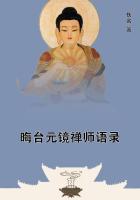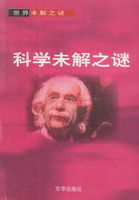The Consistorial Council, which has in the theory of ecclesiastical procedure a very imposing appearance, is in reality the bishop's chancellerie, and its members are little more than secretaries, whose chief object is to make themselves agreeable to their superior. And it must be confessed that, so long as they remain what they are, the less power they possess the better it will be for those who have the misfortune to be under their jurisdiction.
The higher dignitaries have at least larger aims and a certain consciousness of the dignity of their position; but the lower officials, who have no such healthy restraints and receive ridiculously small salaries, grossly misuse the little authority which they possess, and habitually pilfer and extort in the most shameless manner. The Consistories are, in fact, what the public offices were in the time of Nicholas I.
The higher ecclesiastical administration has always been in the hands of the monks, or "Black Clergy," as they are commonly termed, who form a large and influential class. The monks who first settled in Russia were, like those who first visited north-western Europe, men of the earnest, ascetic, missionary type. Filled with zeal for the glory of God and the salvation of souls, they took little or no thought for the morrow, and devoutly believed that their Heavenly Father, without whose knowledge no sparrow falls to the ground, would provide for their humble wants. Poor, clad in rags, eating the most simple fare, and ever ready to share what they had with any one poorer than themselves, they performed faithfully and earnestly the work which their Master had given them to do. But this ideal of monastic life soon gave way in Russia, as in the West, to practices less simple and austere. By the liberal donations and bequests of the faithful the monasteries became rich in gold, in silver, in precious stones, and above all in land and serfs. Troitsa, for instance, possessed at one time 120,000 serfs and a proportionate amount of land, and it is said that at the beginning of the eighteenth century more than a fourth of the entire population had fallen under the jurisdiction of the Church.
Many of the monasteries engaged in commerce, and the monks were, if we may credit Fletcher, who visited Russia in 1588, the most intelligent merchants of the country.
During the eighteenth century the Church lands were secularised, and the serfs of the Church became serfs of the State. This was a severe blow for the monasteries, but it did not prove fatal, as many people predicted. Some monasteries were abolished and others were reduced to extreme poverty, but many survived and prospered.
These could no longer possess serfs, but they had still three sources of revenue: a limited amount of real property, Government subsidies, and the voluntary offerings of the faithful. At present there are about 500 monastic establishments, and the great majority of them, though not wealthy, have revenues more than sufficient to satisfy all the requirements of an ascetic life.
Thus in Russia, as in Western Europe, the history of monastic institutions is composed of three chapters, which may be briefly entitled: asceticism and missionary enterprise; wealth, luxury, and corruption; secularisation of property and decline. But between Eastern and Western monasticism there is at least one marked difference. The monasticism of the West made at various epochs of its history a vigorous, spontaneous effort at self-regeneration, which found expression in the foundation of separate Orders, each of which proposed to itself some special aim--some special sphere of usefulness. In Russia we find no similar phenomenon. Here the monasteries never deviated from the rules of St. Basil, which restrict the members to religious ceremonies, prayer, and contemplation. From time to time a solitary individual raised his voice against the prevailing abuses, or retired from his monastery to spend the remainder of his days in ascetic solitude; but neither in the monastic population as a whole, nor in any particular monastery, do we find at any time a spontaneous, vigorous movement towards reform. During the last two hundred years reforms have certainly been effected, but they have all been the work of the civil power, and in the realisation of them the monks have shown little more than the virtue of resignation. Here, as elsewhere, we have evidence of that inertness, apathy, and want of spontaneous vigour which form one of the most characteristic traits of Russian national life. In this, as in other departments of national activity, the spring of action has lain not in the people, but in the Government.
It is only fair to the monks to state that in their dislike to progress and change of every kind they merely reflect the traditional spirit of the Church to which they belong. The Russian Church, like the Eastern Orthodox Church generally, is essentially conservative. Anything in the nature of a religious revival is foreign to her traditions and character. Quieta non movere is her fundamental principle of conduct. She prides herself as being above terrestrial influences.















